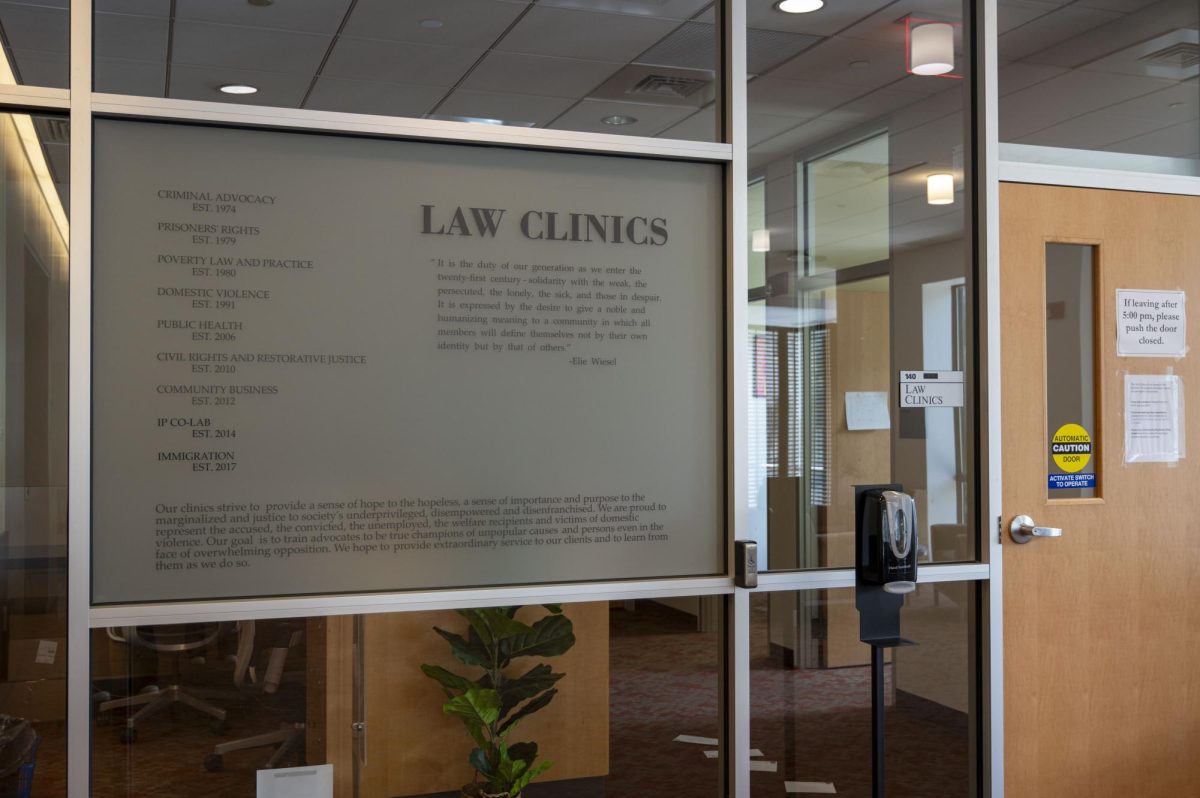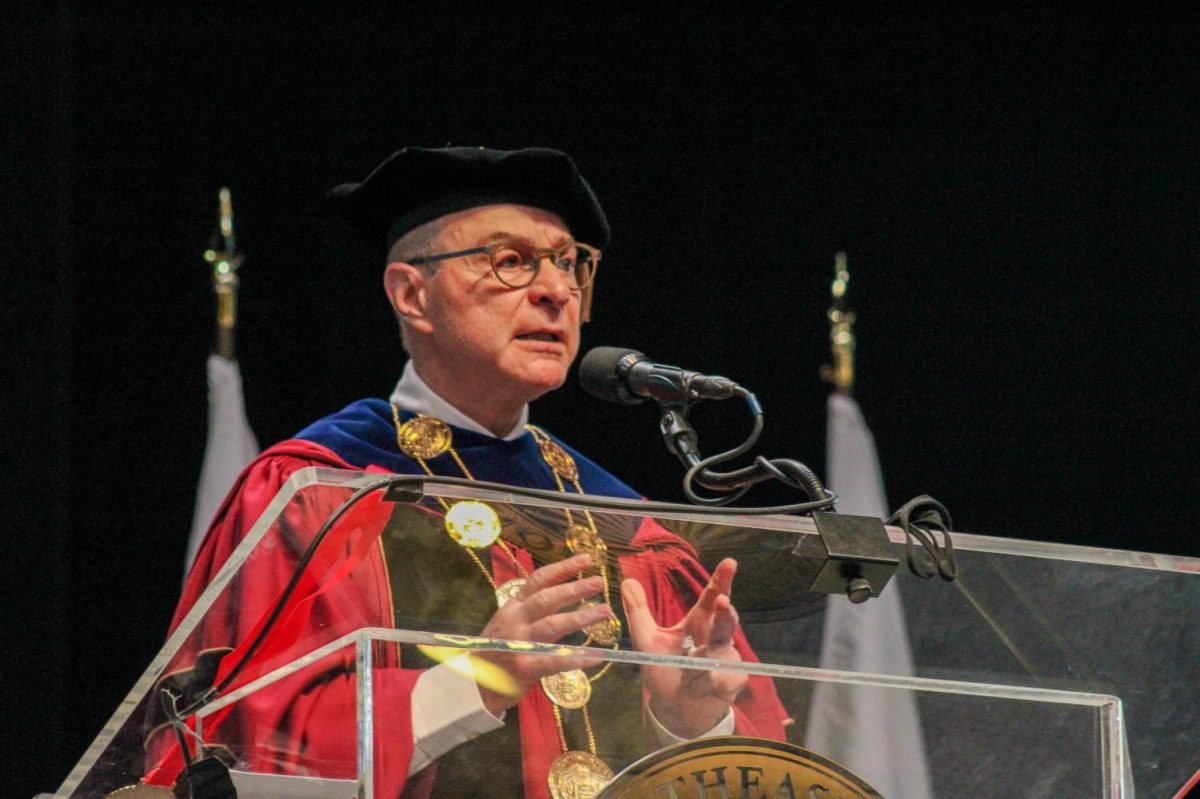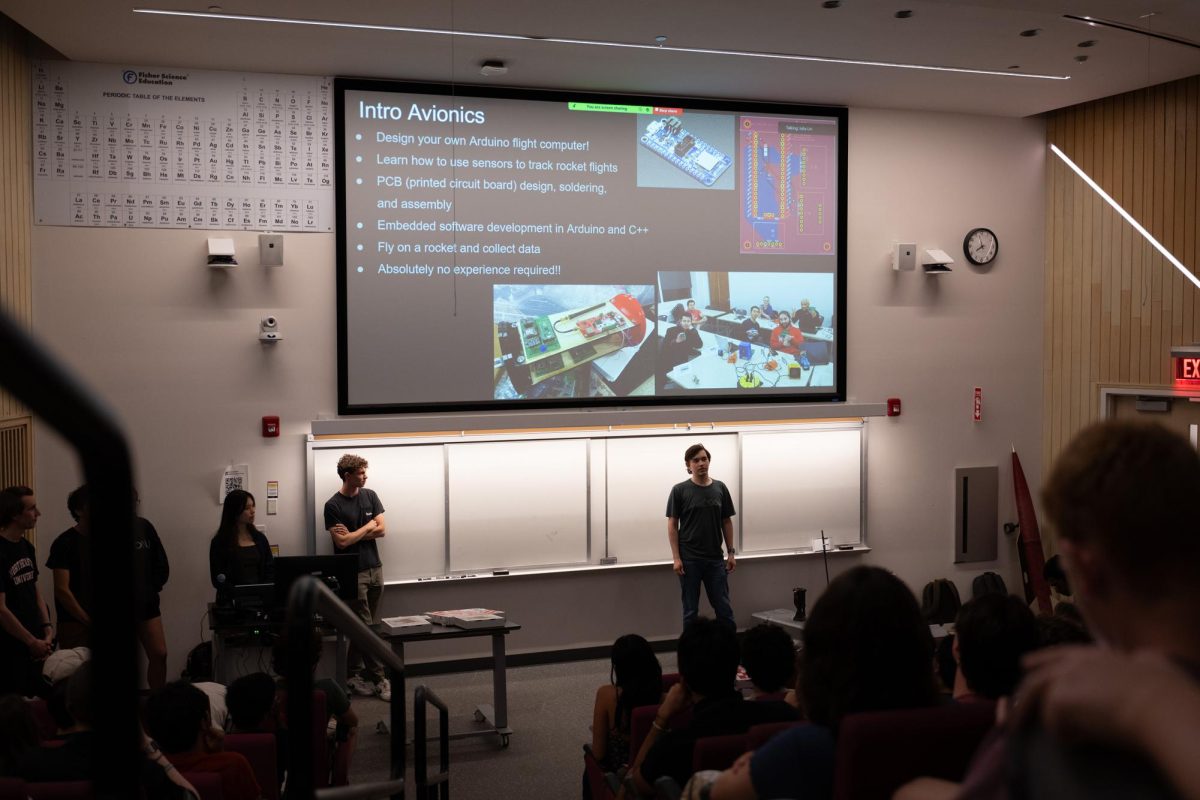Like many international students, Guillaume Flores, a senior international business and finance major, arrived at Northeastern with several peers from his partnering university in Nernier, France.
International students who arrive with peers from partnering universities tend to socialize with each other instead of meeting other American students, Flores said. While there is a cultural and language barrier that separates some of these students from the rest of the university, it is a barrier that must be overcome so international students do not hinder their American experience.
“Our situation is kind of annoying because we’re here to get exposure and meet people, but it’s difficult for us,” Flores said. “Also, the university is huge, which doesn’t help to build stable relationships with other American students.”
It is a struggle for international students to feel welcomed by American peers and maintain lasting relationship with them, Flores said.
To combat these struggles, Northeastern’s International Student and Scholar Institute (ISSI) creates programs to help integrate and welcome international students to the Northeastern community.
“What happens is there is a lot of misunderstanding and misconceptions between U.S. and international constituencies, so we need some kind of mediation and hopefully this program [ISSI] plays a role in mediating,” said Scott Quint, assistant dean for International Student and Scholar services and intercultural programs.
ISSI first welcomes and picks up international students at the airport and provides transportation to campus. Following their arrival, the Orientation Assistance for International Students (OASIS) begins. The beginning of the two-month orientation program provides information to international students like acquiring health insurance, how to open a bank account and how to get a job. ISSI also organizes a variety of day and weekend trips throughout the school year for OASIS to expose international students to the area. Included in these outings are trips to Harvard Square, cross-country skiing in Vermont, hiking in New Hampshire and swimming at Martha’s Vineyard.
Although the ISSI programs are interesting and helpful, they do not effectively integrate international students with Americans, Flores said. In the end, they are surrounded by other exchange students during OASIS, making their confidence and friendships flourish with other people from abroad, rather than with Americans.
Quint said while this is true, it is also necessary because some of the OASIS information sessions and meetings cover important topics pertinent to international students only, like dealing with culturally-based misconceptions reflecting on an individual.
“The first people we meet and hang out with are other international students,” said Damaris Garay, a senior international business major from Acapulco, Mexico. “And usually, you continue to hang out with those same people since [Northeastern] put us together from the beginning. We also arrive a week before the American students, so we have nothing else to do but to get to know each other first.”
For international students majoring in business, Anita Yu, the assistant director for the Center of Education Abroad and Diversity, organizes welcome programs to help them feel more situated.
Yu created a mentoring e-mail system as a way for students to make a connection with the university before they arrive, connecting one mentor per international student. Weekly e-mails are sent with topics including Boston transportation, local weather and different aspects of American culture.
“I try to do something before they come so they feel they are connected to the community before they even get to Northeastern, which I think is very important because otherwise, they are sort of disconnected,” Yu said.
Yu also organizes a welcome reception for freshman international students where they are introduced to the American style of academic expectations, how to start preparing for co-op and what courses to take. Older international students are also brought in for a question-and-answer session where they can share their experiences and answer questions the new students may have.
Despite the programs Northeastern provides, there are many other factors contributing to the separation between international and American students.
Flores said arriving as a junior made it even more difficult to integrate since everyone had already established groups of friends. Although there is much interaction in classes, he said relationships don’t usually go much further.
“At first people seem nice and friendly and they’re excited that we’re from France, but then, in the end, nothing happens,” Flores said. “I don’t get invitations to hang out on the weekends and I barely get greeted when passing by them.”
The main reason international students socialize with other international students is due to shared interests and cultures, Garay said.
“It’s just that we feel more comfortable with each other because we understand what each other is going through,” she said.
Quint and Yu agree that the central reason international and American students separate is due to language barriers and culture shock. Some students are too shy to speak the language because of their accent or they simply don’t feel they know it well enough. Others find it hard to relate to Americans who may not be familiar with their cultures and traditions.
“The international students kind of self-separate and it isn’t because international students don’t like Americans,” Quint said. “It is more the dynamic of how they interact or how confident or unconfident they feel in certain social situations. At the end of the day, it’s just too complex to sit and analyze this so what happens is that international and American students will often self-separate.”
Wan Hsin Lu, a Northeastern alumnus from Taiwan, said the hardest part about making American friends was overcoming the vast culture difference. As a freshman, she had a difficult time integrating with the rest of the non-international student body. Lu said even as a senior, she socialized mostly with other international students because it was easier and she felt more comfortable around them.
“I found that not just me, but all international students, do get along with not just any American student, but more with the ones who have traveled to other countries or who are interested in other cultures,” she said.
Unlike Flores, Garay and Lu, integration for international students arriving alone is much easier since they have few choices but to mingle with other Americans. Even so, these students prefer to socialize with other people in their same situation.
Ayda Micael, a sophomore communication studies major from Milan, Italy, said arriving alone allowed her a better opportunity to integrate with other Americans. However, through ISSI she met other international students whom she related to. Despite these factors, Micael prefers to hang out with international students because she said she has more in common with them since they are experiencing similar situations, like adapting to the differences of American culture. These differences can vary from person-to-person, she said.
Some wonder if this separation between international and American students affects their chances of having a typical American experience and although it varies from each student, the majority feels that it does.
“I haven’t been able to hang out with Americans who really know this country, so I feel like I haven’t been experiencing the culture first hand,” Flores said. “It’s like I’m kind of missing out on something.”
Many professors, directors and students agree it isn’t an issue that can easily be fixed. It varies from person to person depending on circumstances and personalities. But one suggestion an international student had was to start by integrating more American students into international programs.
“You can’t fault anyone,” Garay said. “In the end it’s your choice to live the experience you want to live. If you want to hang out with all international kids, then that’s your choice and if you feel that to get the American experience you need to hang out with Americans, then do it.”









